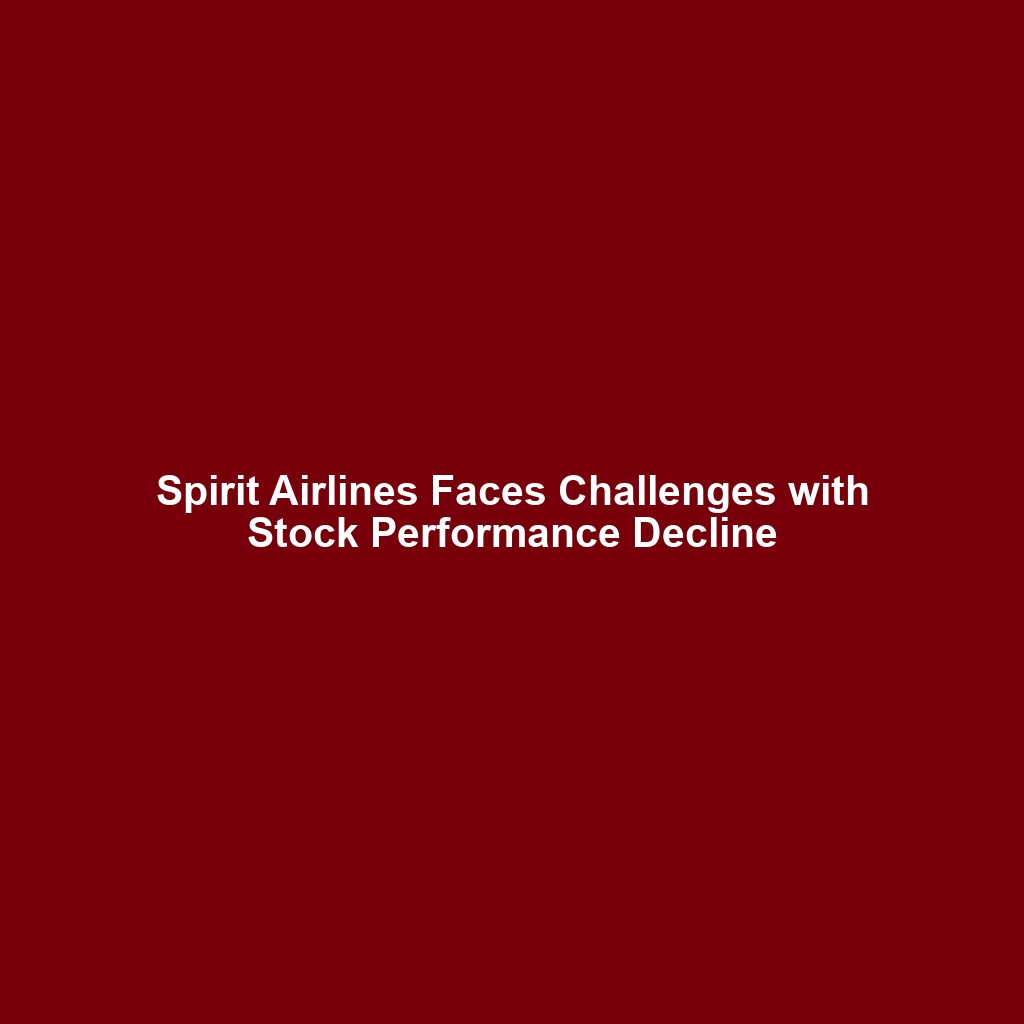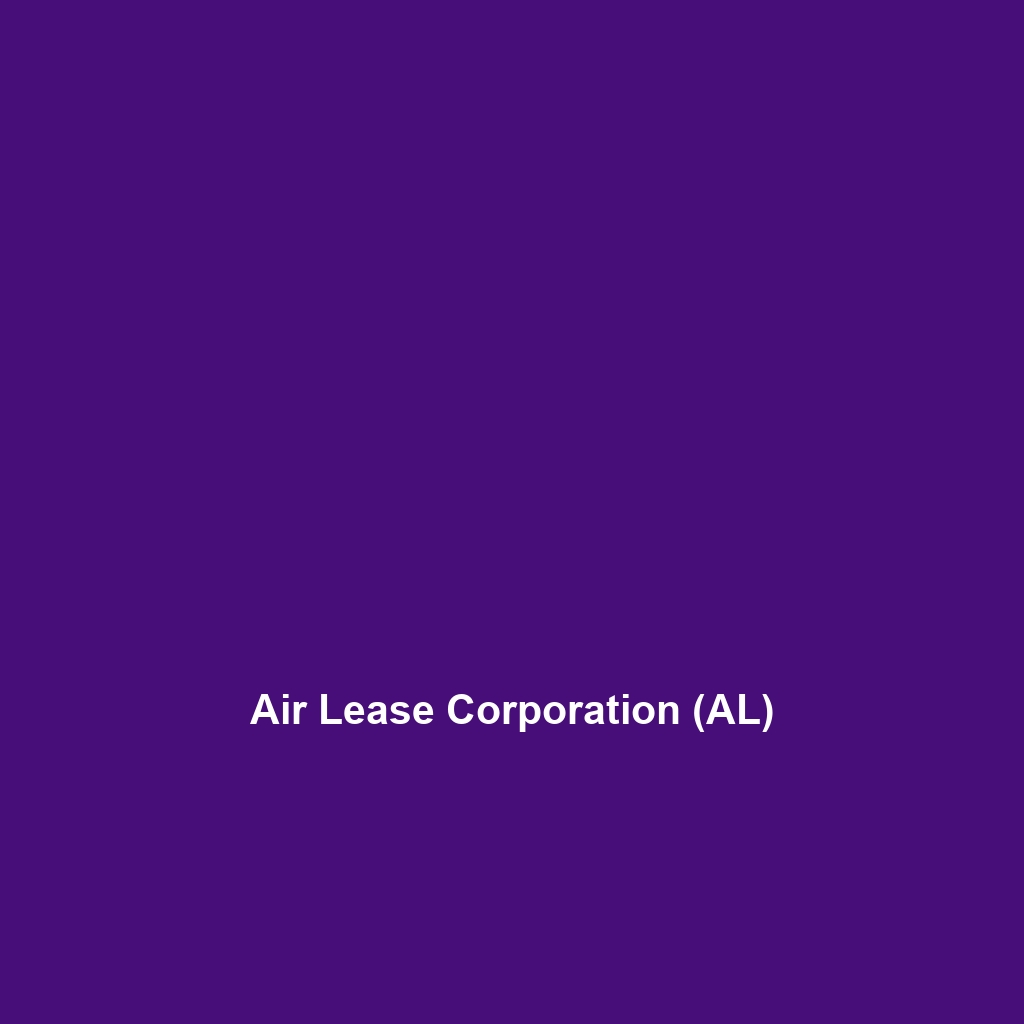Your cart is currently empty!
Tag: airline industry

Spirit Airlines Faces Challenges with Stock Performance Decline
Spirit Airlines Faces Challenges with Stock Performance Decline
Spirit Airlines Faces Challenges with Stock Performance Decline
Spirit Airlines, known for its low-cost ticket offerings, is currently grappling with a downturn in stock performance that raises questions about its future. As of October 2023, the company’s stock has declined over 20% in the past year, reflecting broader challenges facing the airline industry and specific operational hurdles within the company itself. This article explores the multifaceted factors contributing to Spirit’s stock performance and examines what this could mean for the airline going forward.
Market Overview and Recent Performance
Spirit Airlines’ stock performance has mirrored the volatility seen throughout the air travel sector, which has faced significant headwinds since the pandemic. According to market analysts, ongoing challenges such as rising fuel costs, inflationary pressures, and fluctuating demand have all played a role in the decline.
For instance, data from financial analysis firms point to a sector-wide increase in operational costs. Spirit, primarily a low-cost carrier, relies heavily on maintaining lower fares to attract price-sensitive travelers. However, increases in fuel prices, which currently show no signs of stabilizing, have prompted analysts to reevaluate profitability across the airline sector.
Impact of Rising Operational Costs
Fuel costs represent the most significant expense for airlines, and with crude oil prices hovering around $80 per barrel, Spirit Airlines is feeling the pinch. Rising operational costs not only erode profit margins but also compel the airline to adjust its pricing strategy, potentially alienating its core customer base.
“It’s crucial for airlines like Spirit to strike a balance between maintaining competitive fares while also covering their rising costs. Failure to do so could lead to long-term viability issues,” commented aviation analyst David Lutz.
Challenges with Operational Efficiency
Aside from fluctuating fuel prices, Spirit Airlines has faced specific operational hurdles that have raised concerns about its future. The airline’s performance has been marred by a series of flight cancellations and staffing shortages, a dilemma that first became evident during the summer travel surge.
Flight cancellations have reached significant levels, with reports indicating that the airline canceled nearly 7% of its flights in Q3 of 2023, resulting in a loss of consumer confidence. Moreover, staffing shortages have been reported as pilots and crew members have left for better-paying positions within the industry.
Consumer Demand and Travel Trends
On the demand front, Spirit Airlines has also encountered headwinds. While air travel demand has rebounded following the pandemic, economic indicators suggest that consumer spending is beginning to decline. This could lead to a downturn in discretionary travel spending, which impacts demand for low-cost carriers that thrive on affordability.
“As inflation continues to rise, consumers are expected to be more cautious with their spending habits. This shift could adversely affect airlines that cater to budget travelers,” noted economic strategist Sarah Hanley.
Industry Competition and Market Positioning
The competitive landscape has also intensified as airlines rapidly adapt to changing consumer preferences and try to regain lost market share. Major carriers such as Southwest and American Airlines are improving their service offerings, making it imperative for Spirit Airlines to not only compete on price but also on service quality.
Spirit’s unique positioning as an ultra-low-cost carrier gives it a competitive advantage, but it must navigate the challenges posed by larger airlines that are enhancing their offerings. “The ultra-low-cost model is sustainable, but it requires constant adaptation to market changes. Spirit needs to be cautious about how it positions itself in a growing competitive environment,” advised airline consultant James Tarlow.
Future Outlook: What Lies Ahead?
Looking ahead, the future of Spirit Airlines hinges on its ability to manage costs effectively while maintaining passenger satisfaction. The organization has undertaken various strategic initiatives, including expanding its route network and investing in marketing efforts to attract new customers. However, these steps must offset the operational challenges it currently faces.
Furthermore, Spirit Airlines is also exploring options for fleet modernization, which could improve fuel efficiency and operational reliability, although such improvements require substantial financial investment during a time of economic uncertainty.
Conclusion
Spirit Airlines is undoubtedly facing a challenging landscape, characterized by rising operational costs, intense competition, and shifts in consumer demand. With its stock performance reflecting these concerns, stakeholders are eager to observe how the airline navigates its current difficulties. Moving forward, Spirit’s strategies will be crucial in determining not only its stock recovery but also its reputation and viability within the broader airline industry.
As the airline continues to adapt to the changing economic environment, analysts will be closely monitoring its financial health and operational adjustments for signs of recovery and growth potential.
